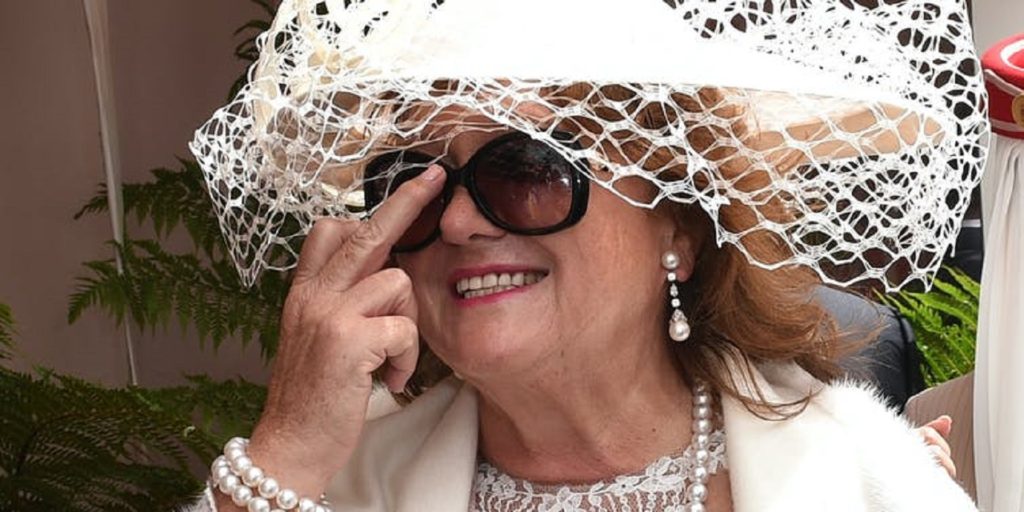I wonder if Gina Rinehart, Australia’s richest woman, knows what “cozzie livs” means.
Does Andrew Forrest have TikTok? I wonder if he’s seeing those Curtis Stone Coles ad remakes to “feed your family for under $10” in 2024, when a bag of shredded cheese costs $11 – if not more.
Maybe 90-year-old Harry Triguboff would be too old for all of that.
But I wonder how these three billionaires – the richest people in Australia – think about money. Because it certainly would be much different to the rest of us.
A new report from Oxfam found the combined wealth of Rinehart, Forrest and Triguboff has more than doubled since 2020, the beginning of the COVID-19 pandemic. Since then, the billionaires have made, on average, $1.5 million per hour since 2020. Billionaires around the world are almost $5 trillion wealthier than in 2020.
Million, billion, trillion – we’ve all heard these terms, but what does it actually mean?
To put it in perspective, let’s visualise one dollar as one second of time. One day, or 86,400 seconds, is the equivalent $86,400, which is just over the median salary for full-time workers in Australia as of August 2023.
One million dollars is the equivalent of around 12 days.
One billion dollars is the equivalent of 30 years.
And one trillion dollars? This is 30,000 years.
CNN once made the comparison that “if you start spending a million dollars every single day since Jesus was born, you still wouldn’t have spent a trillion dollars”.
Meanwhile, more than half the world’s population – five billion people – were made poorer.
The richest Australians’ combined wealth has grown three times faster than inflation in Australia, which has been placing many Australians in the most financially vulnerable position they have ever been in.
When Australia went into lockdown in March 2020, around 873,000 employees were made redundant in a matter of months. This was around seven per cent of the Australian workforce.
Some people quite simply have never recovered from the economic hardship of the COVID-19 pandemic. The flow-on effects of a global health crisis meant higher cost-of-living, lower housing vacancy rates and job insecurity.
At best, people like me are having to deal with the fact that both luxuries and necessities are costing a lot more than they used to. The other night, I ordered a Coke from a bar – it cost me $8 and I nearly passed out.
But it’s far worse for some. The economic crisis triggered from March 2020 has even pushed many Australians into homelessness. On any given night around the country, more than 122,000 people are sleeping rough. Over 17,600 are under the age of 12.
And this is in a wealthy country like Australia. In developing countries, the inequality is outrageous.
Yet as the saying goes, the rich get richer and the poor get poorer. So how on earth do we stop this?
Oxfam’s report released today calls on the Australian government to scrap stage-three tax cuts and, instead, establish a progressive wealth tax of 2-5 per cent on Australian multimillionaires and billionaires.
According to Oxfam, this proposed tax policy could generate $32.36 billion every year. With this money, the government could build more than 60,000 annually, for example.
The Greens have been advocating for a 6 per cent wealth tax on billionaires and a 40 per cent Corporate Super-Profits Tax on big corporations (Oxfam research from last year found 722 global mega-corporations made $1.5 trillion annually in windfall profits in 2021 and 2022 – scroll up for a reminder of just how much money $1.5 trillion annually is).
“Across the globe, we have begun a decade of division, with billions of people shouldering the perilous economic shock of pandemic, inflation and war, billionaires’ fortunes boom,” Oxfam Australia CEO Lyn Morgain said.
“At the same time rocketing cost-of-living pressures mean that everyday Australians are being forced to cut back on food for their families and heating and cooling for their homes, just to keep their heads above water.
“We cannot accept a society that promotes the gross accumulation of wealth alongside widespread global poverty.”
It’ll take just ten years to get the world’s first trillionaire, if this trend continues, but doing so will put ending world poverty out of reach for another 229 years.
According to Forbes’ Rich List, there were 2,640 people with ten-figure fortunes around the world. Meanwhile, nearly half the world’s population – 3.4 billion people – is living on less than $5.50 a day, according to Oxfam.
So, who will it be – the rich, or the poor?


